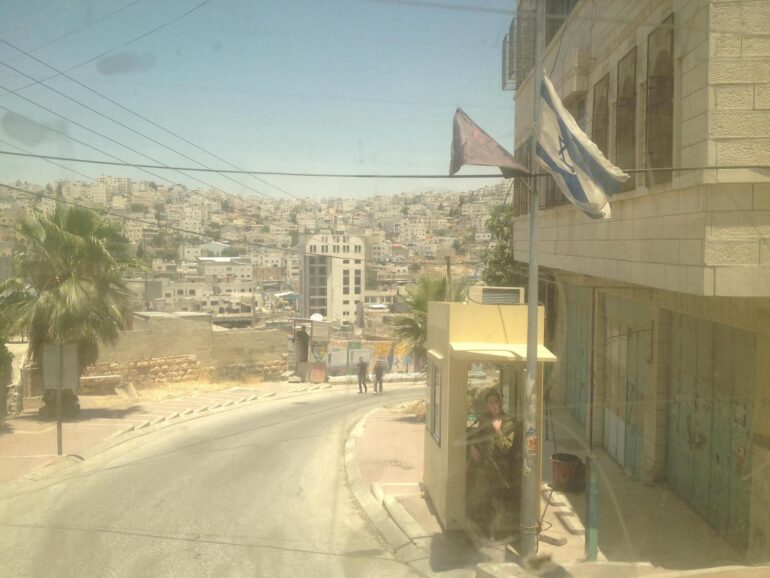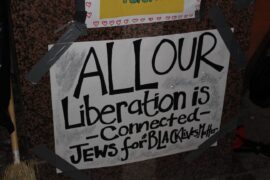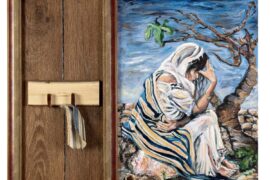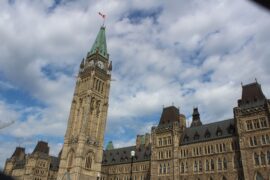Many solutions have been proposed to the Israeli-Palestinian conflict. We are all familiar with the Oslo Accords that sought to divide the land of Israel and create a Palestinian state in Jerusalem, the West Bank, and Gaza, as well as Donald Trump’s recent “Deal of the Century” that seeks to do much the same.
There is the “Jordan is Palestine” solution, the “expelling Palestinians” and/or “creating economic incentives for them to emigrate” solution, and the “annexation with a pathway to citizenship” solution.
There are other creative proposals such as a bi-national solution, the federation model, a confederation model, a semi-autonomous “emirate” solution proposed by Bar-Ilan University Professor Mordekhai Kedar, and many others.
While many of these proposals possess useful features, they all suffer from similar flaws. They fail to adequately satisfy the aspirations of both the Jewish and Palestinian peoples. They fail to correct the historic and contemporary wrongs perpetrated against both peoples. They fail to resolve the conflict in a way that allows Jews and Palestinians to each feel like winners. For all these reasons, the above proposed solutions lack the potential to end the conflict in any meaningful way[1].
Yet a very real solution does exist that can do all that these other proposals fail to do. This solution, or rather, pathway forward, consists of deepening the Jewish features of the state while strengthening its democratic character. In other words, more Jewishness and more democracy.
To understand how deepening the State of Israel’s Jewish features while strengthening its democracy – all without territorial concessions – is the secret recipe for true peace, we need to unpack some important concepts. We must evaluate the historic aspirations of the Jewish people, what makes a nation-state Jewish, what many Palestinians claim to actually want, and what makes a society sustainable and prosperous.
Historic Aspirations of the Jewish People
To put it simply, the Jewish people want Hebrew political independence in the land of Israel in order to correct the historic injustice committed by the Romans when they destroyed our national framework and exiled our people. We want nothing less than the revival of our civilization in the land of our ancestors, especially in places like Jerusalem, Hebron, Shkhem, and Shilo, that constitute the cradle of Hebrew civilization.
This aspiration has been embedded within the Jewish people for close to two thousand years. Scattered around the world, we primarily lived in insular communities, observing customs that reminded us of our tribal way of life, and marking holidays according to the calendar and seasons of the country we left behind. Through our daily rituals and year-round festivals, we reminded ourselves of our national identity, of our inseparable connection to our homeland, and of our desire to return and rebuild. Three times a day, after each meal, on each festival, and at every life cycle event, we remembered Jerusalem[2] .
Moreover, this burning desire to return to the land of our ancestors and to rebuild our civilization fueled our collective identity and our sense of purpose during our exile. Over the past two millennia we made many attempts to fulfill our collective yearnings. Our history is marked with individuals making difficult journeys to return to Palestine, as well by waves of mass immigration. During this period, we also made many attempts to restore our sovereignty through armed struggle, political negotiations and even spiritual efforts[3]. Every failed attempt to restore Jewish independence kept the dream alive and inspired successive attempts until finally the Zionist movement succeeded where many others had failed[4].
Although Zionism succeeded in bringing the Jewish People back to our borders and restoring Hebrew sovereignty, many of our aspirations have been left unfulfilled. Our right to live in the heart of our country, from the tribal territories of Menashe and Ephraim, to Binyamin and Yehuda, is internationally contentious and disputed. Many parts of our homeland are divided with security barriers and checkpoints. Relations between Jews and Palestinians are tense and often violent. Moreover, where is the civilization that we hoped to rebuild? Where are our uniquely Hebrew institutions? Where is the centrality of Jerusalem in national life? Where are the Hebrew values that defined our ancient kingdoms and inspired the world?
Most Jews today do not share the historic collective aspirations of their people. Many might support some aspect of our historic yearnings, such as Jewish independence in a portion of our land, but they might not really care about the heartland, or to what extent authentic Hebrew civilization is revived. For this reason, many of these Jews remain in the Diaspora or are content with the status quo in the State of Israel. There are many Jews, however, that do care and are fully living the aspirations of their people. There are many that dedicate their lives to rebuilding Jewish life in Judea and Samaria, resisting attempts to westernize Israeli society, and reviving an authentic Hebrew civilization[5]. These are the Jews that are willing to fight and die for what they believe to be important to our national story. These are also the Jews that tend to be driving our conflict with the Palestinians and have until now been excluded from the “peace process.” Therefore these Jews, and their Palestinian counterparts, are the people that must be engaged and included in the process of resolving the conflict if we hope to be successful.
Jewish State
After declaring independence in 1948, the Jewish people failed to engage in a national conversation on what kind of state we hoped to create. We failed to fully appreciate the significance or address the ramifications of our return to the land of our ancestors. We skirted our obligation to discuss and debate the meaning behind our return and what the resurrection of a Jewish national framework in our country can or should look like. We replaced the Union Jack with the Star of David but continued many aspects of the British colonial system. Our courts continued to follow British and Ottoman law. Our Knesset copied the British parliamentary system. And we based our institutions on the prevalent social and economic models of the West.
For a growing number of Jews, the current model is unsatisfying. For the national-religious Jews living in the mountains of Samaria and Judea, to the Ḥaredim in Jerusalem and B’nei Brak to many traditional Mizraḥim, the country is not Jewish enough. Moreover, our unwillingness to consider what a Jewish state can look like on a substantive level has actually fueled our conflict with the Palestinians. To hold on to our western-styled Jewish state we have had to overemphasize the importance of demography. We have preoccupied ourselves with maintaining a Jewish ethnic majority while pursuing exclusivist policies that restrict the civil and political rights of others. In doing so, we have created a state that is not Jewish enough for a growing number of Jews, while seemingly too Jewish, or at least too exclusivist and not democratic enough, for Palestinians and others.
Deepening the Jewish character of the state, while softening its western-style ethnocratic features is a critical part of the formula for solving the conflict. Strengthening the Jewish character of the state in a deeply substantive way would address the desires and concerns of a growing number of Jews, including those most in touch with our people’s identity and historic aspirations. It would also alleviate our need to constantly worry about demographics and the number of Jewish citizens because the very framework of the state would deeply exude Jewish identity regardless of the country’s demographic makeup at any given time. A Jewish state that expresses authentic Jewish values in its legal framework, institutions, priorities, and policies could be home to a diverse group of peoples without putting into jeopardy the State of Israel’s role as the national home of the Jewish people.
A national conversation is needed to explore what a truly Jewish state can look like. This conversation would explore and unearth the principles and values that should characterize a deeply Jewish state, and would obviously go beyond mere demographics. I do not contend to know what the full breadth of such a state could look like but to help get the conversation started, the following is a non-exhaustive list of suggestions to deepen Israel’s Jewish character:
A constitution can go a long way in infusing a substantive Jewish framework into the modern nation-state[6]. Building on the existing Declaration of Independence, a constitution could express the raison d’etre behind the Jewish people’s return to the land of Israel. It could clearly recognize our historic aspirations to rebuild our civilization in the land of our ancestors in pursuit of our universal mission of uplifting all of humanity. This dialectical nationalist and universalist purpose would capture the authentic nature of the Jewish people and our historic vision for ourselves and for humanity.
A constitution could enshrine traditional Jewish sources, such as the Talmud as not only legitimate but highly developed sources for government and law. This would broaden the structural and legalistic possibilities beyond declining Western values and inherited archaic Ottoman systems. It would create the possibility for re-imagining the underpinnings of the revived Jewish state from authentic Jewish foundations and values.
Legitimizing traditional Jewish legal sources in the constitution could empower the country’s judicial system to consider authentic sources of Jewish law when adjudicating civil matters such as torts, property, contracts, commercial and other areas of social interaction and conflict[7]. In fact, countless Batei Din already exist across Israel parallel to the official state sanctioned courts to address certain family, commercial, and civil matters among parties that prefer to work through Talmudic and authentic Jewish notions of jurisprudence. With or without a constitution, this system of parallel courts could be expanded to more areas of life to give people a choice in legal schemes that reflect their identities and values[8].
A constitution could also firmly recognize and protect basic Jewish rights and establish state obligations that could not be restricted or denied by future governments or the legislative process. It could establish fundamental rights and obligations that reflect Jewish values and aspirations, such as the right of Jews to immigrate and the obligation of the state to promote Jewish immigration. A constitution could set a custodial obligation of the state over the entire land of Israel and establish the right of all citizens to live under Jewish sovereignty in every corner of the country. It could protect the rights of minorities and recognize various indigenous identities.
In addition to a constitution, the democratic process itself could be made more democratic in a way that reflects the authentic Hebrew approach to government. Currently, citizens vote in periodic national elections for parties that may or may not act according to the will or interests of the electorate. Critics have argued that such a representative system is illusionary as it reduces democracy to voting in occasional popularity contests with no meaningful way for people to participate in or guide the priorities and policies of the country. Our people’s tradition, however, provides for a different democratic method of selecting representatives that has the potential to be more inclusive and participatory than the current model. Our ancestors would meet locally in groups of ten to select one leader to represent them. This leader of ten would then meet with other selected leaders in an assembly of fifty to select a leader to attend an assembly of one hundred representatives and so on until a national governing body was chosen[9].
Local courts and councils would also be chosen to handle local issues. This form of democracy and delegation of authority is more authentic to our people’s traditional way of life and has the potential to better empower people with the ability to influence the policies and systems they live under by encouraging direct participation and engagement on the issues.
Adding substance to the Jewishness of the state can also be achieved through our people’s ancient practices of Shmita and Yovel. Shmita was our people’s custom of ceasing all agriculturally based production every seventh year. This Sabbatical Year would effectively put a stop to most major economic activity. It would also mark the cancellation of debt, indentured servitude, and slavery. Yovel was celebrated every fifty years and triggered the return of land to its original owner or descendants. This is not the place to discuss these revolutionary practices and to consider their application to a 21st century economy. But if re-imagined for the modern era, both Shmita and Yovel can play an important role in keeping society equitable, healthy, and free[10].
There are many other ways to deepen the Jewish character of the State of Israel. For example, what do civil rights, banking and consumer lending, and domestic and foreign national priorities look like in a Jewish state? What are the obligations of citizenship? What are the rights of minority groups? The list above is only a very small sample.
It is also important to note that a Jewish state does not mean a halakhic state where Jewish “religious” law is compulsory. A Jewish state can be one where citizens and communities are for the most part free to live and participate in the cultural and societal frameworks that speak to their identities and preferences. It can also be one where distinct communities live with a high degree of autonomy that allow them to manage their own affairs and priorities. Moreover, an important historical Jewish value is unity combined with diversity. Jewish sovereignty was never meant to enforce societal uniformity. The Hebrew tribes that composed the original Israeli national formation were very diverse in their practices and customs. Furthermore, the Noaḥide Laws explicitly allow others to live in the land of Israel while holding distinct identities and practices, so long as certain universal tenants of justice and ethical behavior are respected and upheld.
Palestinian Aspirations
I am hesitant to describe Palestinian aspirations as I am not Palestinian. Furthermore, Palestinians are not a monolithic group. Like the Jewish people, there are many diverse voices and interests. Therefore, I encourage everyone to do their own investigation and to come to their own conclusions. But in the interest of moving forward and exploring whether the conflict can be solved, I will describe how I have heard a significant number of Palestinians relate to the conflict[11].
A significant portion of Palestinians are not interested in having their own exclusive sovereign state, especially if such a state is created on only a small portion of historic Palestine and without Jerusalem or the many places that Palestinians lived in only a few generations ago. Living under the corrupt and autocratic Palestinian Authority for roughly three decades has only further soured many to the idea that national sovereignty can improve their lives. Many Palestinians have in fact expressed a preference for civil and political rights inside a single state strethching from the Jordan River to the Mediterranean Sea[12]. For these Palestinians, the conflict seems more a civil rights struggle than a struggle for national independence[13].
In other words, a significant percentage of Palestinians express a desire to live as equals in a democratic country from the river to the sea. They want freedom of movement and the ability to visit and live in the places where their grandparents once lived. They want to live under a civil authority that they can influence and not a military bureaucracy that they have no control over.
Of course, Palestinian aspirations range widely, and the above described desires can overlap with other aspirations as well. Some Palestinians might want an Islamic state[14], some may want exclusive sovereignty over Jerusalem, some may want to disenfranchise the Jews of our political independence, and so on. Some have a material interest in maintaining the status quo or partitioning the land. Pretty much all want to see the refugee crisis resolved. But the point is that a significant portion of Palestinians would live in peace with Jews if they could experience real equality and personal freedom.
Ultimately, we cannot know for certain whether we can truly live peacefully with a large portion of Palestinians until we make the effort. To date, we have never really tried to make peace in a way that doesn’t partition the land. From the very start of the Zionist movement, Jews tended to exclude Arabs and generally treat them as an inconvenient obstacle that required a solution rather than as a people that could be partnered with to build a new society[15]. Although mass Jewish return to Palestine at the turn of the 20th Century created economic opportunities for Arabs and others living under Ottoman rule, it economically and politically disenfranchised many others. Early Zionist efforts to train Jews to farm and cultivate the land displaced Arab tenant farmers that had worked the land for generations[16]. This along with sporadic violence that erupted from misunderstandings and conflicts over land and resources bred animosity between Jews and Arabs. British colonial tactics to divide and rule, along with continued Jewish immigration, further exacerbated these divisions and led to the Hebron massacre[17] and general anti-Jewish violence[18].
The success of the Jewish guerrilla struggle to free Palestine from British rule in 1948 led to the first Arab-Israeli war and the subsequent Jordanian occupation of Jerusalem, Judea and Samaria, the Egyptian occupation of Gaza, and the Palestinian refugee crisis[19]. Most of Israeli society seemed content with the status quo until 1967, when the country’s leadership felt compelled to take action against several Arab armies amassing on Israel’s borders[20]. Israel’s surprise attack and stunning victory saw the nation’s return to the places lost in the 1948 War. But Israel did not offer political or civil rights to the Palestinian population inside its new borders. Instead, Zionist leaders hoped to exchange the newly liberated portions of the land of Israel, along with their Palestinian populations, for a peace treaty with Arab neighbors[21].
In time, Israel gave into American and international pressure to recognize and empower the Palestinian Liberation Organization to act as the representative of the Palestinian people to negotiate the partition of the country and the creation of a Palestinian nation-state in part of the land of Israel. Since then we have had several decades of failed “peace” talks and eruptions of violence.
As the brief history of Jewish-Palestinian relations shows, we have yet to make a real concerted effort at a just peace that does not divide the land into two separate states. In Biblical times, when our ancestors entered the land under Yehoshua bin-Nun’s leadership, we offered the Canaanite nations the opportunity to live in peace with us. Unfortunately, we have not extended the same offer to the Palestinians, and Israeli leaders have pursued partition over the possibility of real peace and partnership.
Jewish and Democratic
A deeply Jewish and democratic state can address the aspirations and grievances of both the Jewish and Palestinian peoples. A state that is both deeply Jewish and fully democratic is not a contradiction. Ancient Hebrew civilization exhibited striking democratic values.The first Hebrew polity delegated authority and empowered the people to select their own leaders[22]. The Torah acted as a constitution that upheld human dignity and brotherhood. Through practices such as Shmita, Yovel, and many others, our ancestors crafted a free and egalitarian society that challenged the prevalent slave societies of the ancient world.
At the same time, democracy is not meant to be an end in and of itself. Democratic government is most successful when it serves as a tool to help a society achieve a collective vision and mission. The United States, for example, was not founded for the primary purpose of creating democracy. Rather, it molded a democratic form of government to facilitate economic and political freedom and the pursuit of life, liberty, and happiness[23]. Similarly, the Jewish state’s democratic features should serve the rebirth of the Hebrew civilization that we have collectively yearned to reconstruct since its destruction at the hands of Rome and our subsequent exile[24].
The fusion of authentic Jewish values with democratic frameworks and institutions can help us build a real Jewish state while allowing those that do not care about the aspirations of Jewish history to still enjoy dignity, civil rights, and inclusion[25]. Deepening the Jewish character of the state would address the aspirations of those Jews that care about rebuilding Hebrew civilization. After all, the Jewish people did not return to the land of our ancestors after nearly two thousand years in order to build a Jewish Sweden.
Semitic Identity
Jewish values and democratic structures alone are not enough to end the conflict. A nation is sustainable and prosperous when its people share a common identity. People must feel bound to each other through a common story and sense of shared purpose. Fortunately, for Jews and Palestinians, the building blocks of a shared identity already exist. We need only to get past the factors driving us into conflict to see them.
For starters, we both love the same land. Part of the reason the conflict has persisted for so long is because every attempt to solve it has required us to compromise on a portion of the land. For the Jews and Palestinians that most identify with their people’s stories and aspirations, giving up on a portion of the land is anathema. If we no longer felt in conflict with each other, the potential would exist for us both to bond over our mutual love of the land and its holy cities and places.
Secondly, we both feel connected to the same history and people. Many Palestinians believe that they are descendants of the ancient Israelites that lived in the land prior to our expulsion by the Romans. To them, King David, the Maccabees, and even Jesus are ancient Palestinians. Moreover, evidence suggests that many Palestinians are descendants of the Second Temple era Judeans that assimilated into conquering Christian and Muslim civilizations. Many Palestinians have family names and traditions that mirror Hebrew names and traditions[26]. Genetic testing has shown commonality between Jews and Palestinians as well.
Eventually, developing a shared identity and a real mutual stake in one country can create opportunities for partnerships that can further lead to real peace and a shared future. For the Jews that care about rebuilding Hebrew civilization, Palestinians and others could gain materially from helping to facilitate many important Hebrew traditions, such as Shabbat, Shmita and Yovel. Partnership with Palestinians could also help the country develop and deepen economic, social, and cultural inroads into the neighboring Arab world.
Our mutual love of the land and our shared past can lay the foundation for a common Semitic identity. A shared Semitic identity, however, does not mean uniformity. We can have our own Hebrew and Arabic languages, cultural norms, and holidays. We can send our children to different schools and we can enjoy our own recreational activities. But a common umbrella identity can help us feel a bond and mutual respect and lead to a shared sense of purpose. It can help us partner to build a prosperous country that is not threatened by each other’s presence and culture.
Practical Steps
Ultimately, any real solution that is pursued must come from the people on the ground, from the Jews and Palestinians living the conflict. Building a Jewish and democratic state that can satisfy Jewish and Palestinian aspirations is not something that can be accomplished overnight. The Israeli-Palestinian conflict has raged for a hundred years and no instant remedy exists. Moving forward requires changing what people think is possible. It requires changing paradigms on the ground and abandoning the two-state framework in all of its forms, including defunding the material incentives that continue to drive partition efforts.
Immediate first steps should consist of increased grassroots dialogue between the Jews and Palestinians that are most in touch with the stories and aspirations of their respective peoples. Resources and funding should be directed toward facilitating conversations and relationship building between Jews and Palestinians that live in the West Bank[27]. These on the ground connections can begin to lay the foundations for changing paradigms and imagining the possibility of a shared future. These interactions might also help Jews and Palestinians in Judea and Samaria unify over some of the same challenges that both populations face, such as Israel’s bureaucratic military administration, the treatment of detained individuals, and the unavailability of a transparent process for owning, developing, and protecting property[28].
Additionally, on a national level the State of Israel can take steps to show a good faith desire to take responsibility for the West Bank and all the people living there. Steps such as removing the “wall” that runs through half of the land separating Jews and Palestinians in much of Judea and Samaria from the rest of the country[29]. Or taking over responsibility for Palestinian civil servant salaries at levels equal to what Israeli citizens working the same jobs currently earn.
Lastly, we must also encourage conversations among all segments of the Jewish population on what a Jewish state can look like. These discussions should address why the Jewish people have returned to the land of our ancestors after so many centuries. This conversation might also evolve as the demographics of the country continue to change with the rapidly rising birth rates of Israel’s Ḥaredi and national-religious sectors.
Conclusion
The Israeli-Palestinian conflict is not an arbitrary power struggle or even a standard regional ethnic conflict. In many ways it is the product of a misunderstood identity. The painful history between Jews and Palestinians is directly tied to the Jewish return to the land of Israel, its motivations, and ramifications. Unpacking the historic drive of the Jewish people to return and to revive Hebrew civilization is a critical component of addressing the conflict. The return of an exiled people to the land of their ancestors has never happened in human history and the ramifications of this unprecedented event cannot be properly addressed via the usual political frameworks. The solution must speak to the deep sense of justice and mission that fueled the Jewish people’s return. At the same time, however, the solution must also speak to the Palestinian experience and the demand for dignity, freedom, justice, and equality.
For these reasons, more Jewishness and more democracy are the keys to satisfying the aspirations of both Jews and Palestinians. Deepening the Jewish character of the state while expanding democratic and universalist principles to all can transform our current exclusivist western-styled nationalism into a Hebrew Universalism that broadens identity and the possibility of inclusion and partnership. This transformation would allow our authentic Hebrew identity to shine, not to the exclusion of others but rather as a vehicle to liberate and empower the diverse peoples that call the land of Israel home.





